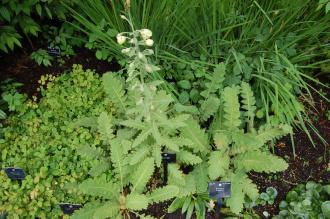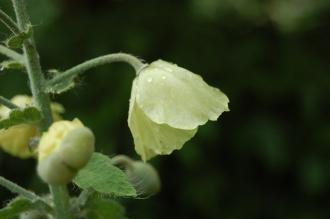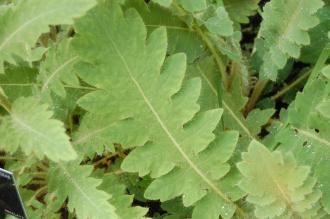
Meconopsis paniculata (07/06/2014, Kew gardens, London)
Position: Full sun to partial shade
Soil: Moist, well drained soil
Flowering period: Early summer
Eventual Height: 1.8m
Eventual Spread: 50cm
Hardiness: 6a, 6b, 7a, 7b, 8a, 8b, 9a, 9b
Family: Papaveraceae
Meconopsis paniculata is a deciduous short lived perennial with a clump forming, upright habit. It flowers in its final year of growth then dies. Its light green leaves are lanceolate, pinnately lobed, have a velvet texture, up to 45cm long and 12cm broad. Its yellow/ cream hermaphroditic flowers are saucer shaped, up to 5cm across and appear terminally on leafless stems.

Meconopsis paniculata Flower (07/06/2014, Kew gardens, London)
Meconopsis paniculata, commonly known as the Panicled Yellow Poppy, is native to the Himalayas region ans north east India. In its native habitat it grows on grassy slopes and as a woodland understory plant.
The etymological root of the binomial name Meconopsis is derived from the Greek, mekon meaning ‘poppy’ and opsis meaning ‘looks like’. Paniculata is derived from the Latin meaning ‘flowers in panicles’.
Meconopsis paniculata may be useful to the landscape architect as part of a mixed herbaceous planting scheme or for planting within the dappled shade of trees.
Ecologically Meconopsis paniculata flowers are attractive to pollinating insects. beetles feed on the seed capsules and this plant is exceptionally attractive as food for terrestrial gastropods.

Meconopsis paniculata Leaf (07/06/2014, Kew gardens, London)
Meconopsis paniculata prefers moist, fertile, well-drained soils. It tolerates most pH of soil, although it prefers a neutral to acid pH.
Meconopsis paniculata requires no maintenance. After flowering this plant produces seed, unwanted seedlings may be removed.

